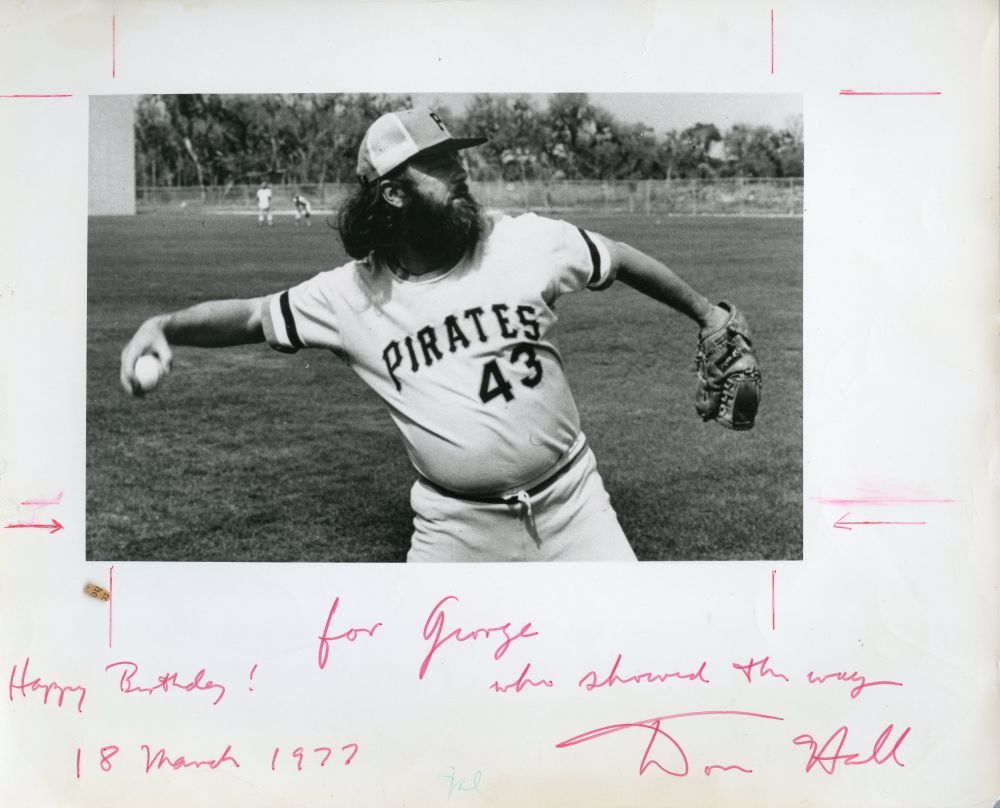Donald Hall, who served as The Paris Review’s first poetry editor, died this Saturday at the age of 89.
Hall had an enormous influence on American poetry. A prolific writer, he published more than fifty books, from poetry and drama to biography and memoirs, and edited a pair of influential anthologies. His biggest renown was for his poetry, where he explored mortality, baseball, the distant past, and returned, again and again, to the subject of the death of his second wife and fellow poet, Jane Kenyon. Although Hall went on to have other lovers, including his longtime companion Linda, he arranged to be buried next to Jane, beneath a headstone inscribed with lines from one of her poems: “I BELIEVE IN THE MIRACLES OF ART, BUT WHAT PRODIGY WILL KEEP YOU BESIDE ME?” Hall served as poet laureate of the United States in 2006, and had, in his house in New Hampshire, a framed photo of himself standing between the Obamas. But before all that, he was an editor—first at Harvard’s literary magazine and then here. He published some of the earliest work of Robert Bly, Adrienne Rich, Louise Simpson, James Wright, and many others. “I was trying to define a generation,” Hall once said about his early days as an editor, “I think it worked very well.”
There are few great poets with whom Hall was not in regular correspondence. “My letters are my society,” he said in his Art of Poetry interview. “I carry on a dense correspondence with poets of my generation and younger. Letters are my café, my club, my city.” In an essay for the Library of Congress, Hall wrote, “Way back we didn’t call ourselves poets, because it would have been pretentious. Poets were rare, and poets were great or they were nothing.”
Although he often mourned the state of contemporary poetry, of technology and the proliferation of words, Hall measured himself and the poetry he loved against the greats. “The desire must be,”’ he said, “not to write another dozen poems, but to write something as good as the poems that originally brought you to love the art. It’s the only sensible reason for writing poems. You’ve got to keep your eye on what you care about: to write a poem that stands up with Walt Whitman or Andrew Marvell.” And Hall built poems that would last, poems for posterity, poems that could not be washed away.
from The Paris Review https://ift.tt/2tEfxdH

Comments
Post a Comment